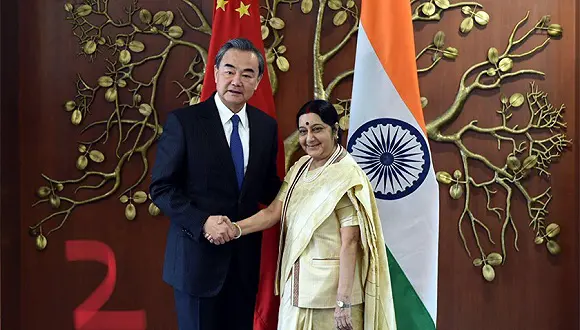Sunday saw the most deadly mass shooting in U.S. history, but experts have said new gun control laws are unlikely.
The killings, which occurred in Las Vegas, claimed nearly 60 lives and wounded more than 500, when a gunman opened fire on a crowd at a country music concert from a 32-floor hotel room.
The shooter, identified as Stephen Paddock, attacked concert-goers at Mandalay Bay Resort and Casino. He later took his own life, and police found over a dozen additional firearms and explosives, according to local authorities and news reports.
On Monday, White House Press Secretary Sarah Sanders said there will be "time for policy discussion to take place" over gun control.
Indeed, recent years have seen a number of mass shootings, often followed by calls for more gun control, in a country where unstable individuals have legally been permitted to purchase military-grade firearms.
But experts said it is unlikely that U.S. President Donald Trump will make any new calls for more gun control.
"I don't see Trump or Republicans in general pushing for gun control," Brookings Institution Senior Fellow Darrell West said.
"They have been opposed to action in this area for decades and have not been swayed by past mass shootings," he said.
"Even the Sandy Hook massacre of school children did not move them to action," he said, referring to the 2012 mass shooting in which a deranged gunman opened fire in an elementary school, killing dozens of people, including children.
"Their base is solidly pro-gun and does not want any limitation on their gun rights," West said.
"Other nations place common sense limitations on guns, and this makes it much harder for shooters to stockpile weapons and undertake mass shootings," West said.
The right to bear arms, as guaranteed in the U.S. Constitution, is seen as sacred in many rural communities in American's heartland, whose support was a major factor that pushed Trump into the White House last November. Many firearms advocates -- but not all -- are opposed to even the most basic gun control legislation, as they view that as a slippery slope that would eventually result in infringement on their constitutional rights.
Others, however, view measures such as stricter background checks as simply logical, in order to prevent those with a history of violence or mental illness from obtaining firearms. Gun control advocates also believe that military assault-style weapons -- which are attainable for many U.S. citizens -- should be either banned or face stricter regulations.
Experts note that there are no easy solutions, but that stricter background checks could help keep automatic rifles and military-grade ammunition out of the hands of those with a history of violence or mental instability.
Gun advocates say guns are not the problem, but that people with bad intentions are the issue, and that government should think more about what is driving people to commit these mass killings in the first place.
Indeed, mass shootings have become increasingly common in the United States in recent years, despite the fact that gun laws are virtually the same now as they've always been.
The last decade saw three of the deadliest shootings in U.S. history. In 2007, a student at Virginia Tech killed 32 people; in 2012 a deranged gunman entered the Sandy Hook elementary school and murdered 28 people, including many children; last year a gunman killed 49 people at a gay nightclub in Orlando. Now, the Vegas shooting has dwarfed all three of these incidents in terms of the death toll.
Experts on mass killings say if someone is truly determined to carry out a mass murder, they will find other ways to do it if automatic weapons are unavailable, such as setting off a homemade bomb.
But advocates of gun control say stricter controls on automatic weapons could result in fewer casualties, as military-style weapons can fire hundreds of rounds in seconds. In contrast, many other weapons can only fire a few rounds before the shooter needs to reload. That could leave time for would-be victims to run away or disarm the gunman.
(ASIA PACIFIC DAILY)
 简体中文
简体中文

